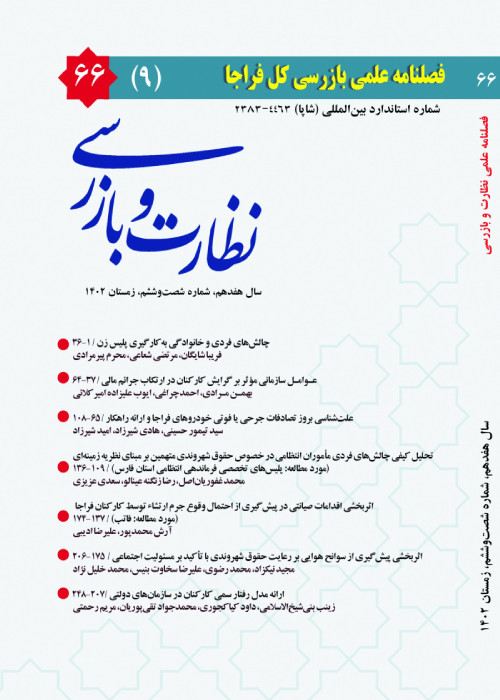A comparative study of the knowledge of the judge in Imami jurisprudence and criminal law in Iran and Europe
The science of the judge is sometimes the science of persuasion due to Shari'i evidence. This type of sensory science is placed during proofs and is used in the phase of checking evidence or valuing evidence. After proving the reason, there is no more room for not sticking to the reason and the judge issues a verdict based on the legal reason. The knowledge of the judge is sometimes derived from the judicial emirate. This type of sensory science is an independent reason, in other words, it is placed in front of other reasons. The validity of this type of evidence in the crimes of divine right and human right is always one of the disputed issues between the jurists, including the early and late jurists, in the light of comparative jurisprudence, which is of the type of acquired knowledge and extracted from the contents of the case. In European criminal law, the judge's knowledge is derived from judicial emirates and scientific evidence is basically positive for all types of crimes. Currently, Iranian criminal law is a combination of jurisprudence and European thought. The purpose of the current research is to revise the epistemological foundations of the science of the judge in the measure of comparative comparative studies in order to identify the legal gap and provide new solutions.
The current research is of descriptive and analytical type and data analysis was done in the form of libraries and flash sampling.
This research shows that the legislator's lack of attention to the patterns and principles governing comparative law in the adaptation of each of the concepts in terms of legislation and rule-making has led to contradictions that innovation in the system of objectivity of evidence with the acceptance of science contrary to it and worshiping Shari'i evidences in proving penal crimes are among them.
A comparative study has shown that in Imami jurisprudence, even though the possibility of a mujtahid judge's departure from neutrality is considered unlikely, the judge can rely on his personal knowledge. In Iranian criminal law, the judicial procedure is based on the validity of the judge's knowledge and it is based on They have considered the principle of preference over other evidences. In European law, the system of persuasive evidence is the principle and the judge's positive knowledge of all crimes, and the judge's appeal to personal knowledge is against the principle of impartiality. In common law, it is accepted exceptionally in cases where the judge has expertise in that field, and in Roman Germanic law, it is the standard. Proving a crime is persuading the judge's conscience.
- حق عضویت دریافتی صرف حمایت از نشریات عضو و نگهداری، تکمیل و توسعه مگیران میشود.
- پرداخت حق اشتراک و دانلود مقالات اجازه بازنشر آن در سایر رسانههای چاپی و دیجیتال را به کاربر نمیدهد.



